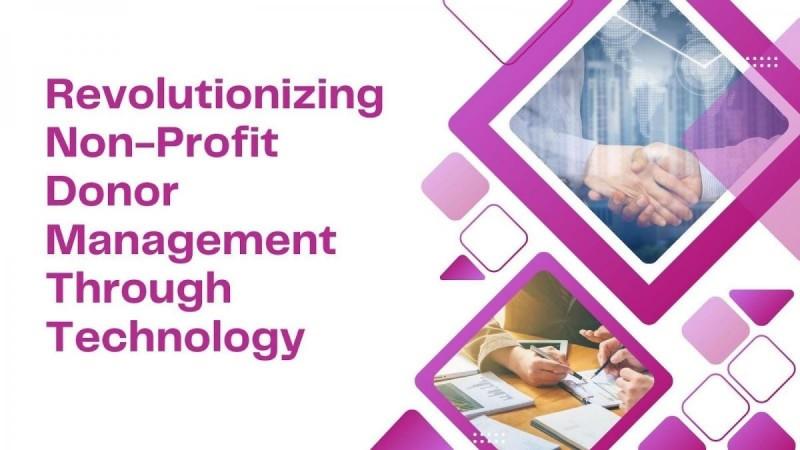
In this modern era of digital transformation, non-profit organizations often face challenges in managing donor relationships efficiently. To bridge this gap, researcher and technology expert Sritulasi Shreedharan explores how innovative customer relationship management (CRM) systems can enhance donor engagement and streamline administrative tasks. Her insights provide a framework for transforming non-profit donor management through advanced digital tools.
The Challenges of Manual Donor Management
Many non-profits still rely on outdated manual systems to track donor data, leading to inefficiencies and missed opportunities. Studies show that organizations using traditional methods face data inaccuracies, donor communication delays, and high administrative costs. These inefficiencies can result in lower donor retention rates, reduced fundraising effectiveness, and increased staff workload. Additionally, the lack of a centralized system prevents teams from accessing crucial donor information promptly, affecting the overall efficiency of engagement efforts.
The Shift to Digital Solutions
Modern donor management systems integrate automation and data-driven insights to optimize donor interactions, making donor engagement more efficient and personalized. By implementing CRM solutions, non-profits can improve data accuracy, reduce processing time, and enhance donor relationships. Automated systems allow organizations to track contributions in real-time, generate personalized communication, and reduce manual labor. Furthermore, integrated analytics tools help organizations evaluate donor behavior trends, allowing for more strategic planning, improved outreach efforts, and better fundraising decision-making.
Leveraging Relationship Intelligence
Advanced CRM solutions incorporate relationship intelligence to analyze donor interactions and predict engagement patterns. By using machine learning algorithms, organizations can identify high-value donors, track communication history, and automate personalized outreach. These capabilities help non-profits cultivate stronger donor relationships and improve fundraising outcomes. Predictive analytics further enable organizations to anticipate donor needs and preferences, fostering long-term commitment.
Mobile-First Design for Better Accessibility
The adoption of mobile-responsive CRM platforms has significantly enhanced donor engagement. With mobile-friendly interfaces, non-profit teams can access real-time donor data, process transactions on the go, and improve responsiveness. Mobile-optimized systems ensure seamless interactions, allowing organizations to manage campaigns and donor outreach with greater flexibility. Moreover, mobile applications provide instant notifications and reminders, keeping donors engaged and informed about upcoming initiatives.
Automating Donation Processing
Automated donation processing eliminates the need for manual data entry, reducing errors and increasing efficiency. By leveraging automation, non-profits can ensure timely acknowledgment of donations, streamline payment processing, and maintain accurate financial records. This enhances donor satisfaction and encourages recurring contributions. Secure payment integrations also provide donors with multiple transaction options, improving accessibility and trust in the donation process.
Best Practices in CRM Implementation
A structured approach to CRM adoption ensures successful integration. Organizations that follow a phased implementation plan, conduct staff training, and prioritize user adoption experience higher efficiency gains. Data migration, change management, and continuous system optimization play key roles in ensuring long-term success. Additionally, gathering feedback from donors and internal teams helps in refining the CRM system to better align with organizational objectives.
Measuring the Impact of Digital Transformation
Non-profits that implement CRM solutions report significant improvements in donor retention, engagement, and administrative efficiency. Automated systems help reduce donor acknowledgment processing time, enhance response rates, and improve fundraising effectiveness. With streamlined operations, organizations can allocate more resources to mission-driven activities. The ability to generate customized reports and performance analytics allows leadership teams to make data-backed decisions that drive organizational growth and sustainability.
In conclusion, Sritulasi Shreedharan's research highlights the transformative power of digital solutions in non-profit donor management. By embracing CRM technology, organizations can enhance efficiency, strengthen donor relationships, and improve financial sustainability. As non-profits continue to navigate digital transformation, adopting innovative solutions will be key to maximizing their impact. Investing in advanced donor management systems ensures a future-proof approach that enables organizations to adapt to evolving donor expectations and fundraising landscapes.

















